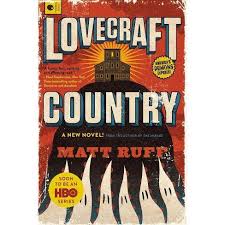One measure of how much I like a book is by how much I keep talking about it. In one way or another it has captured me, provoked me, stayed with me.
Here are twelve, in no particular order, that I’ve read in the last two years which I keep thinking about. As they range from fiction to nonfiction and from academic to popular, I think you can find one in the list below that you’ll really love too.
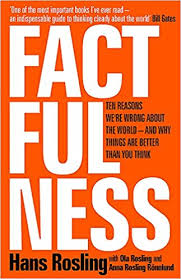 Factfulness by Hans Rosling
Factfulness by Hans Rosling
A mindblowing book that shows with solid data (1) that the world is much better economically, politically, educationally, medically than we ever thought, (2) why we are ignorant of these facts, and (3) why this gives us hope to keep working on what needs fixing.
Recursion by Blake Crouch
Believable, well-rounded characters that we care about and a sci-fi page turner all in one.
 Dreyer’s English by Benjamin Dreyer
Dreyer’s English by Benjamin Dreyer
Stephen Colbert meets Strunk & White in this informative and cheerfully acerbic guide to grammar, style, and punctuation
The Road to Character by David Brooks
A much-needed book about the importance of eulogy virtues (the impact we have on others) over resumé virtues (our achievements) which reveres the “crooked timber” school of humanity; that is, people who are very aware of their flaws and who, as a result, push against their bent selves to achieve strength.
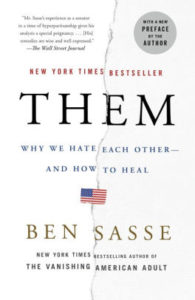 Them by Ben Sasse
Them by Ben Sasse
A U.S. senator says America isn’t polarized for the reasons we think but because we are lonely people who have lost connection to our communities.
Lovecraft Country by Matt Ruff
This fun supernatural novel is an homage to H. P. Lovecraft and his spooky, weird pulp fiction of the last century while also serving as an incisive critique of Lovecraft’s bigotry.
 The Crucifixion by Fleming Rutledge
The Crucifixion by Fleming Rutledge
A substantive and pastoral celebration of Christ’s crucifixion as God’s victory over Sin, Death, and the Devil, while seeing his substitutionary work (in our place and on our behalf) as the necessary partner to this cosmic triumph.
12 Rules for Life by Jordan B. Peterson
Peterson is the crusty, old coach who does not tolerate excuses, lack of effort, or stupid choices. He expects the best from you and won’t settle for anything less—not because he needs another victory but because he wants the best for you.
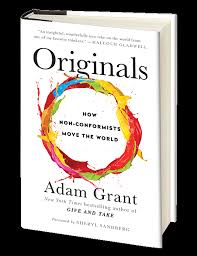 Originals by Adam Grant
Originals by Adam Grant
From what makes a great base stealer to how to parent for moral development to why you should get rid of the suggestion box to how to write a great headline to creating change as a minority in a majority culture, the book offers wide ranging, stimulating ideas we can put into practice.
Mr. Penumbra’s 24-Hour Bookstore by Robin Sloan
Great fun all the way through, at the intersection of books and technology, old knowledge and new.
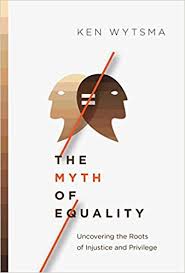 The Myth of Equality by Ken Wytsma
The Myth of Equality by Ken Wytsma
This important and eye-opening book reveals how state-sponsored racist policies did not end with the abolishment of slavery, what biblical justice calls us to, and how we can move ahead individually and corporately in concrete ways.
The Theological Intentions of Mark’s Literary Devices by Dean B. Deppe
A tour de force; a systematic unpacking of the structural and other devices Mark uses to highlight four themes: the Messiah is a suffering, crucified servant; discipleship will also be met with suffering, confusion, and failure; the Gentiles are welcomed into the new community in Christ; many Jewish regulations are fulfilled in Jesus and are no longer in effect.
What are the books you keep talking about?
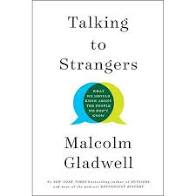 Both Neville Chamberlain and Lord Halifax met Hitler multiple times and thought him trustworthy. Why? Dozens, perhaps hundreds, of intelligent and worldly-wise people trusted the Ponzi King, Bernie Madoff, many losing their life savings. Why?
Both Neville Chamberlain and Lord Halifax met Hitler multiple times and thought him trustworthy. Why? Dozens, perhaps hundreds, of intelligent and worldly-wise people trusted the Ponzi King, Bernie Madoff, many losing their life savings. Why? Gladwell begins and ends the book with the story of Sandra Bland, the 28-year-old African American who in 2015 was stopped for a minor traffic infraction, arrested, and committed suicide in jail three days later. He methodically unpacks the recorded July 10 encounter with State Trooper Brian Encinia.
Gladwell begins and ends the book with the story of Sandra Bland, the 28-year-old African American who in 2015 was stopped for a minor traffic infraction, arrested, and committed suicide in jail three days later. He methodically unpacks the recorded July 10 encounter with State Trooper Brian Encinia.

 After some time, and having wasted everything, he is destitute and starving. In desperation he decides to return to his father, thinking to make an abject apology and ask for mercy.
After some time, and having wasted everything, he is destitute and starving. In desperation he decides to return to his father, thinking to make an abject apology and ask for mercy.  Normally I don’t suggest self-editing before we start drafting. That can often shut down our flow. Unless you usually find yourself writing 3,000 words for every 1,000 assigned, it’s best to cut afterward. But how? A few things come to mind.
Normally I don’t suggest self-editing before we start drafting. That can often shut down our flow. Unless you usually find yourself writing 3,000 words for every 1,000 assigned, it’s best to cut afterward. But how? A few things come to mind. Fourth, in nonfiction you will often have main points. Sometimes you’ll have subpoints as well. But if you find you have sub-subpoints, those are likely candidates to ax.
Fourth, in nonfiction you will often have main points. Sometimes you’ll have subpoints as well. But if you find you have sub-subpoints, those are likely candidates to ax.  1. Read more. All the books were waiting that I’ve wanted to get to that I hadn’t had time for.
1. Read more. All the books were waiting that I’ve wanted to get to that I hadn’t had time for. My wife, Phyllis, needed to do it differently. She is such an activist I suggested she not make a plan or any long-term commitments for a year. Otherwise she would fill up her schedule without a clear sense of priorities. And I knew she would have plenty to do during that year, but she needed to organically see what her new rhythm of life would be. So she did. She spent the year continuing to be active with friends, family, discussion groups, and service opportunities. But no big plans.
My wife, Phyllis, needed to do it differently. She is such an activist I suggested she not make a plan or any long-term commitments for a year. Otherwise she would fill up her schedule without a clear sense of priorities. And I knew she would have plenty to do during that year, but she needed to organically see what her new rhythm of life would be. So she did. She spent the year continuing to be active with friends, family, discussion groups, and service opportunities. But no big plans. That might not even solve all your problems. After all, sending a message into the future can be a tricky business. What could make sure that it didn’t degrade as it passed through the space-time continuum? The technology could break down. Human error or human limitations could prevent the message from being transmitted. And because language and culture change significantly over time, our words and syntax could be difficult to understand by those in the future.
That might not even solve all your problems. After all, sending a message into the future can be a tricky business. What could make sure that it didn’t degrade as it passed through the space-time continuum? The technology could break down. Human error or human limitations could prevent the message from being transmitted. And because language and culture change significantly over time, our words and syntax could be difficult to understand by those in the future. Writing and reading are so commonplace we forget how almost magical the whole process is. We can receive and send ordinary and exceptional stories as well as knowledge across thousands of miles and hundreds of years with people we have never met and who may not know our language.
Writing and reading are so commonplace we forget how almost magical the whole process is. We can receive and send ordinary and exceptional stories as well as knowledge across thousands of miles and hundreds of years with people we have never met and who may not know our language. 





 1. Get
1. Get 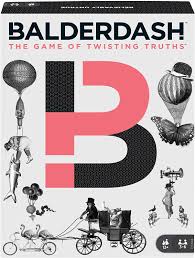 4. Play
4. Play 

